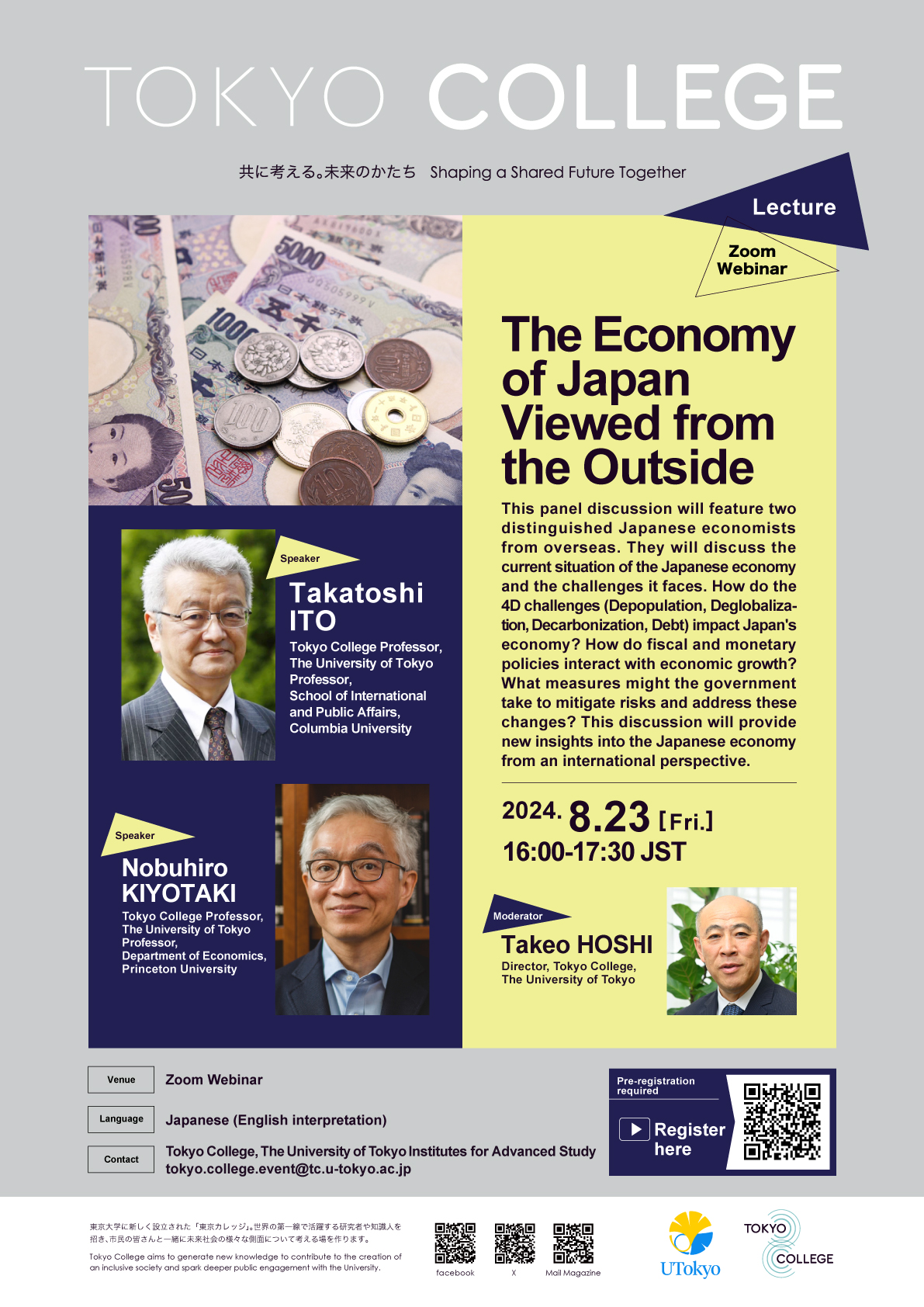Panel discussion “The Economy of Japan Viewed from the Outside” (Speakers: Prof. Takatoshi ITO, Prof. Nobuhiro KIYOTAKI)

| Date(s) | Friday, 23 August 2024, 16:00-17:30 JST |
|---|---|
| Venue |
Zoom Webinar (Register here) |
| Registration | Pre-registration required |
| Language | Japanese (English interpretation) |
| Abstract |
This panel discussion will feature two distinguished Japanese economists from overseas. They will discuss the current situation of the Japanese economy and the challenges it faces. How do the 4D challenges (Depopulation, Deglobalization, Decarbonization, Debt) impact Japan’s economy? How do fiscal and monetary policies interact with economic growth? What measures might the government take to mitigate risks and address these changes? This discussion will provide new insights into the Japanese economy from an international perspective. |
| Program |
Lecture Takatoshi ITO (Tokyo College Professor, The University of Tokyo; Professor, School of International and Public Affairs, Columbia University) Nobuhiro KIYOTAKI (Tokyo College Professor, The University of Tokyo; Professor, Department of Economics, Princeton University)
Discussion, Q&A
Moderator Takeo HOSHI (Director, Tokyo College, The University of Tokyo) |
| Speaker Profile |
Prof. Takatoshi ITO Prof. ITO’s research specialties are in international finance, open macroeconomics, and the Japanese economy. His recent research focuses on microstructures of the foreign exchange rates and inflation targeting. He is the author of Japanese Economy (2nd Edition, 2020), Managing Currency Risk (2018) and many other books and refereed journal articles.
Prof. Nobuhiro KIYOTAKI Prof. KIYOTAKI’s specialty is macroeconomics and monetary economics, and he has been examining the interaction between money, credit, asset prices and aggregate production over the business cycles and economic growth. He is the author of “Banking, Liquidity and Bank Runs in an Infinite Horizon Economy,” with Mark Gertler in American Economic Review 2015, and “Liquidity, Business Cycles and Monetary Policy” with John Moore in Journal of Political Economy 2019. |
| Organized by | Tokyo College, The University of Tokyo |
| Contact | tokyo.college.event@tc.u-tokyo.ac.jp |
















